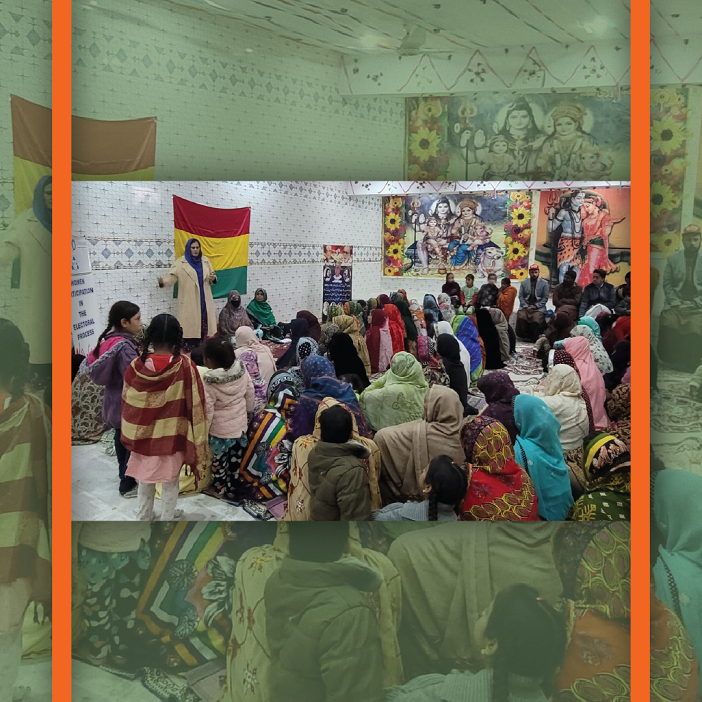In Balochistan's 65-member House, there are three reserved seats for minorities, similar to women, allocated to political parties that secure more than five per cent of the constituencies in the general election.
But the minorities here complain that the political parties nominate "specific" people and do not include the opinion of the minorities in their selection, nor do these people pay attention to their problems.
According to the Election Commission, there is a population of 51 thousand 245 non-Muslim people in 35 districts of Balochistan, of which 27 thousand 15 are men and 24 thousand 230 are women. The largest non-Muslim population is in Quetta, where 19,567 people from minority communities live.
In the second place, there are five thousand 115 non-Muslims in the Jafarabad district. Similarly, there are four thousand 278 people in Lasbela and 2,500 in Khuzdar.
But here, hardly any political party has given a ticket to a non-Muslim candidate on the general seat.
Akemi Roger, who belongs to the Christian community, says that his community always votes in elections and plays a role in the win of the candidate of one or the other party.
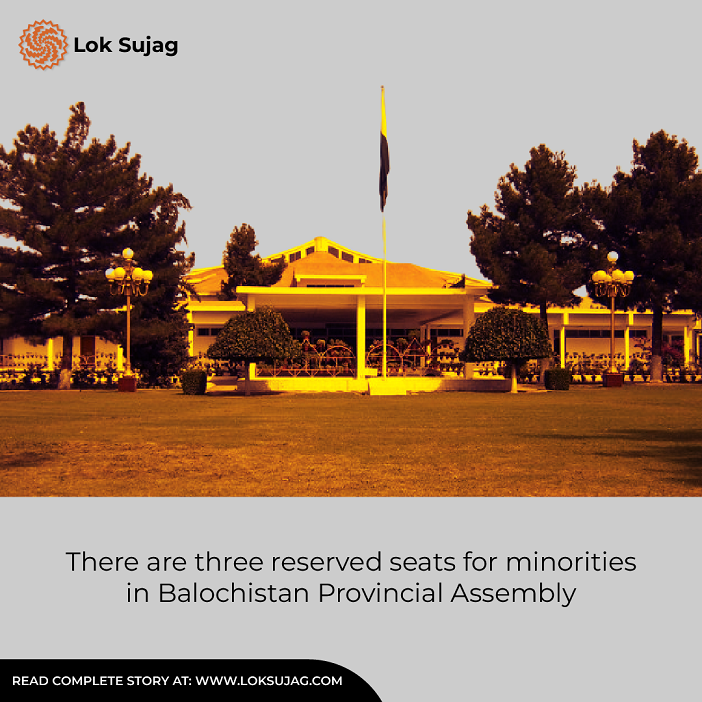
"When our people go to the elected representatives with the problems of water, electricity, gas and jobs, we’re told to go to the MPs of our community. The minority representative says the party has selected them, so funds will also be spent at the party's will."
Roger says that if the people elect their representatives directly, then the real representatives of the minorities will go to the assemblies. The party will not pressure them, and the problems of minorities will also be solved.
The Constitution of Pakistan 1973 states that every adult citizen of the country has the right to contest elections and choose their representative through vote. Before the elections in 2002, General Pervez Musharraf amended the sub-clauses of Article 33 of the Constitution "to mainstream minorities".
Under this amendment, the reserved minority seats in the National Assembly were increased from eight to 10 and 'separate election' was changed to 'mixed election'.
In Balochistan, the political parties have not given tickets to any minority member on the general seat in the mixed type of election, but they are nominated according to the quota of the Election Commission.
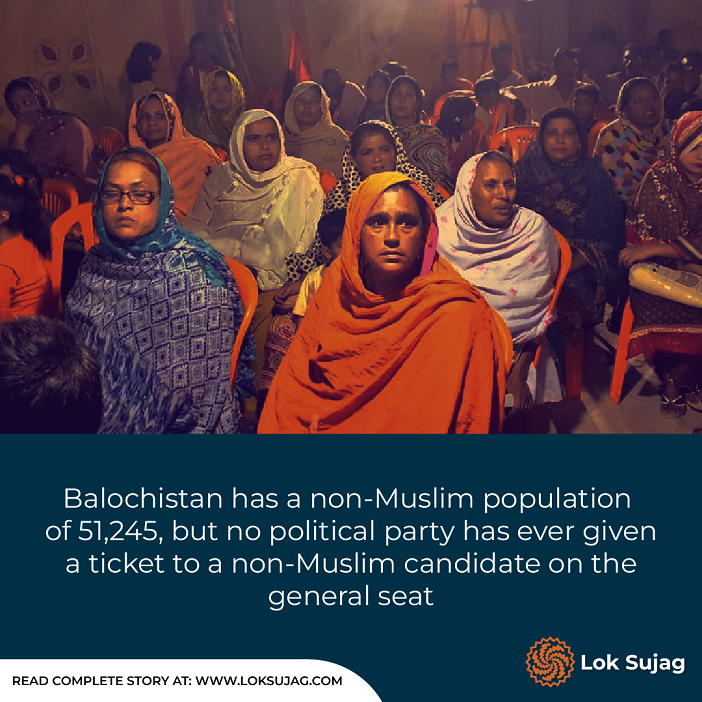
According to the new electoral system, the voter in the general election votes for the candidate of the political party in their constituency. Later, the specific minority seats in the assemblies are distributed among the political parties in proportion to their general seats. The parties nominate their minority representatives on these seats.
Samuel Ayub, the minority leader of the Balochistan Awami Party, believes that people in Pakistan, especially Balochistan, vote on the basis of religion, nationality, tribe and community. Therefore, political parties do not give tickets to minority candidates on general seats.
He says that if a political party gives a ticket and supports a minority representative to for a general seat, anyone can win.
"For example, in the last election, there were six colonies of minority population in the PB-25 constituency of Quetta. A large part of the non-Muslim population of Quetta lives in these colonies. In 2018, Malik Sikandar won here with 4,750 votes. But no ticket was given to any minority candidate here."
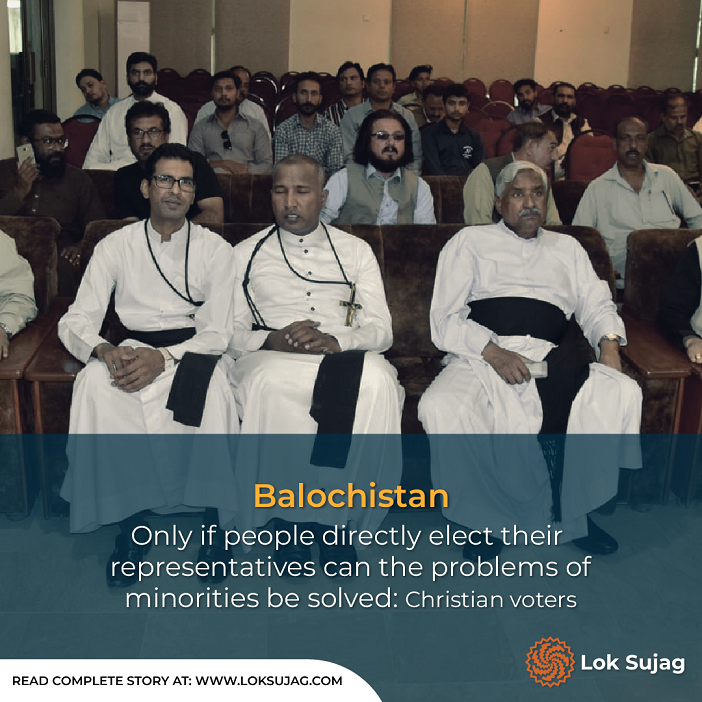
According to Samuel Ayub, since no candidate from the minority community is contesting the election, these minorities do not participate fully in the election season. Ironically, very few political parties turn to minority areas for votes.
"If we look at the record of the last 15 years, the nominees for minority seats had minimal political background. Most of the nominated MLAs give money in the name of 'party fund', and this is an abuse of minority representatives."
Before the 1985 election, Zia-ul-Haq amended the law and introduced separate elections for minorities, but the ambiguity found in it was not removed.
Due to this amendment, the whole of Pakistan was the constituency for the National Assembly candidate and the entire province for the Provincial Assembly. The absence of a special constituency of minority "elected" representatives made it difficult for the minority masses to reach their representatives.
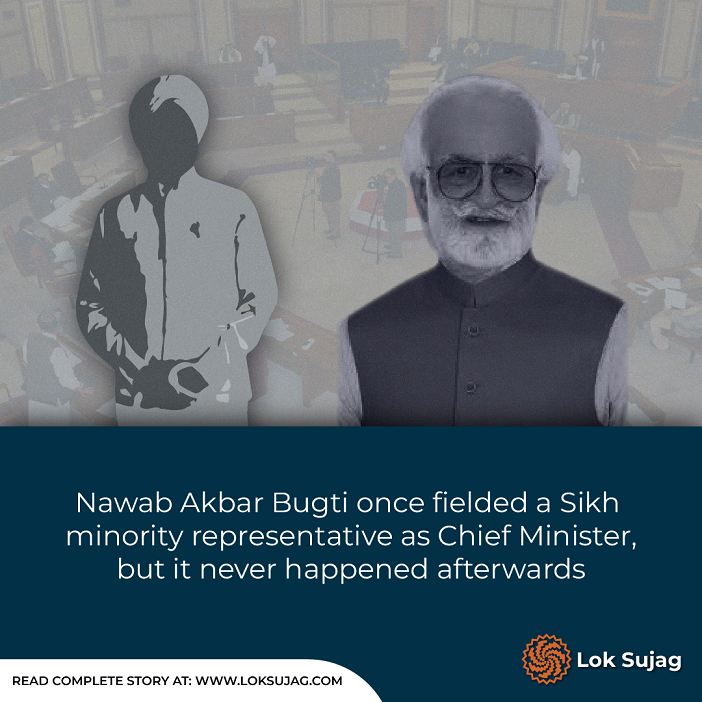
Samuel explains that in 2002, Pervez Musharraf abolished the amendment and restored the series of joint elections. Currently, the number of reserved seats for minorities in the National Assembly is 10.
Former PML-N member and award-winning human rights defender Sardar Jasweet Singh says that Quaid-e-Azam Muhammad Ali Jinnah spoke of equality in the first Constituent Assembly, but it has faded in the last 50 years.
He alleges that political parties bid for minority seats after elections. Despite the large number of minorities in Balochistan, they are not getting real representation.
"There is a lot of frustration in our community. Just like the citizens of Kashmir, the minorities should have a dual right to vote so that they can remain in the national stream and elect their representatives."
He said that Nawab Akbar Bugti had once nominated a Sikh minority representative as the chief minister, but it never happened again. Political parties should be mandated to give 5 to 10 per cent of tickets to minority representatives.
Also Read
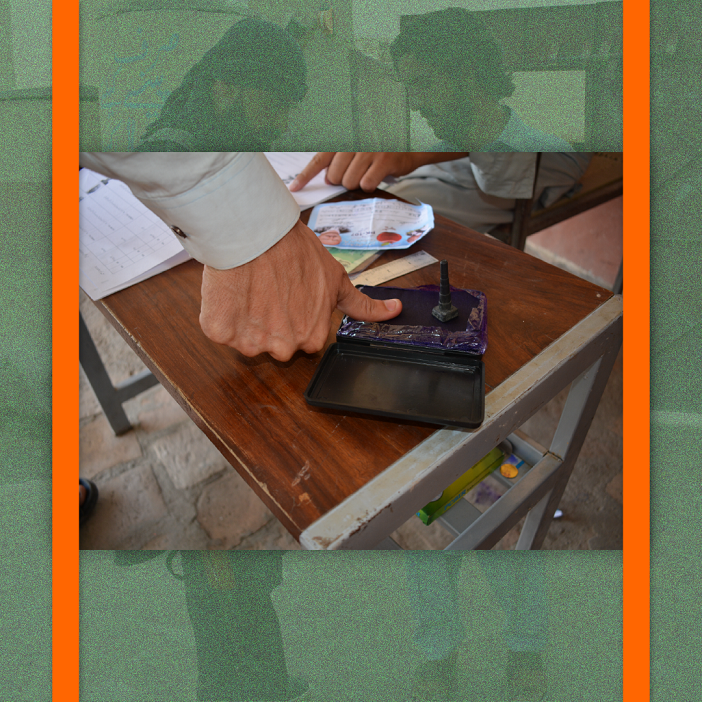
Lack of funds hinders minority elected officials in addressing community issues
"We (minority leaders) support a party for five years. When it wins an election, overnight, a minority person comes from somewhere with a "big bag", and the party makes him a member of the provincial or national assembly. Then one approves a government colony while another makes money elsewhere."
According to the Balochistan Assembly Secretariat, in the previous assembly, Sham Lal from Majlis-Amal, Khalil George and Titus Johnson were members of the assembly from BAP.
Prior to this, Anita Irfan was a member from PML-N, Gansham Das Madwani from BNP, William John Barkat from Pakhtunkhwa MAP, Engineer Basant Lal Gulshan from Hamkhyal Group, Jafar George from the People's Party, and Jay Prakash from Jamiat Ulema Islam (F) were members in two assemblies.
Vice President of PML-N Balochistan Naseem Rehman said that minority members should think like leaders and decide whether to demand tickets from the party.
"If they think they can win a seat from any constituency, they should apply to the party; otherwise not.”
He says that the minority representatives should take a step forward for their community. All democratic parties issue tickets under the democratic mechanism. If a minority leader feels that he deserves a ticket, he has the right to continue his effort.
Published on 17 Jan 2024
